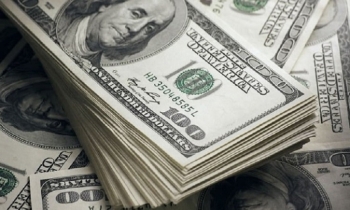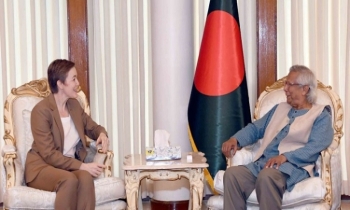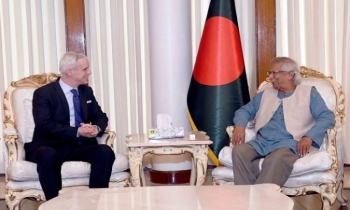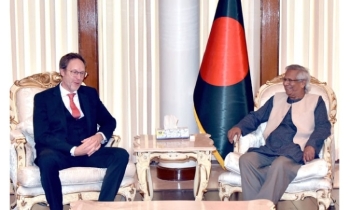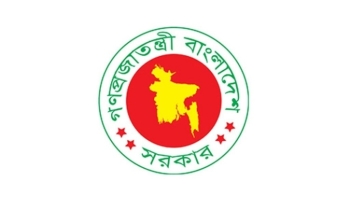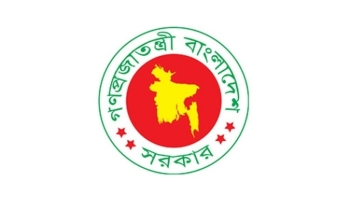Budget 2022-23: Face of govt gets longer over fiscal management
Asif Showkat Kallol || BusinessInsider

Photo: Representational
Declining revenue collection and remittances and ballooning energy and fertiliser subsidies have put the government in a worrisome state over planning Bangladesh’s national budget for 2022-23 fiscal year, a finance ministry official said.
He said the government has to be soft over low revenue collection as the economy is recovering from the fallout of Covid-19 pandemic.
As exports and imports have increased, the economy is facing a balance of payment deficit.
As a result, a deep uncertainty has loomed large over attainment of
7.2% GDP growth this financial year, he said.
Foreign agencies have also said that GDP growth cannot be accomplished this financial year.
In the backdrop of such a gloomy macroeconomic situation, the finance ministry has convened two policy-making meetings to review economic situations and prepare the next national budget.
The Coordination Council on Fiscal, Currency and Currency Exchange Rates meeting and the Budget Management and Resources Committee meeting are scheduled to be held simultaneously on 22nd December to be presided over by Finance Minister AHM Mustafa Kamal.
The meeting will discuss various economic aspects, such as progress in Annual Development Programme (ADP) implementation, exports, imports, revenue collection, inflation and remittances, finance ministry sources said.
The budget management and resources committee meeting will discuss the current budget implementation situation and attainment of GDP.
“In the middle of the financial year, we can see a number of risks including low government earnings and uncertainty over release of development partners’ funds,” the finance ministry official said.
He added, “What we are most worried about is the dire situation over revenue collection and the low flow of remittances and US ban on RAB top officials.”
The government is trying to fathom the fallout of sanction on RAB by Washington DC and impact of new coronavirus variant, Omicron, he noted.
Omicron is now spreading like an epidemic in Europe and that some 89 countries across the world have been affected so far.
Under these circumstances, if all the EU countries go into lockdown, Bangladesh’s prime export item readymade garment would face a massive blow.
“Our worries over revenue collection would be discussed thoroughly in the budget meeting”.
Fertiliser and electricity subsidy:
The budget for this fiscal year allocated a total of Tk 9,200 crore in farm subsidies. About Tk 4,000 crore has already been released from that budgetary allocation, until November.
However, considering the current situation in the international market, the finance ministry thinks that if the subsidy trend continues, the exchequer will see government assistance worth more than Tk 25,000 crore from the earlier projection of Tk 16,000 crore.
The government this financial year has approved Tk 9,000 crore in power subsidy of which Tk 4,000 crore had been spent until November.
Bangladesh Power Development Board sought a total of Tk 2,700 crore as subsidy for May-June period. The finance division disbursed Tk 1,296 crore to pay the IPP and rental power plants.
Meanwhile, as per the National Board of Revenue (NBR) data, in the first five months of the current financial year (July-November) the revenue collection deficit has been Tk 13,099 crore.
The target for the first five months of the current financial year was set at Tk 1,13,366 crore while revenue earning stood at Tk 1, 00,267 crore.
Although the target has not been met, the revenue collection has increased by about 15 percent over the same period of the last financial year. NBR’s revenue collection target for the current financial year has been set at Tk 3, 30,000 crore.
Bangladesh’s one of the major sources of foreign exchange earnings is the expatriates’ income. In November, their remittance inflow recorded one of the lowest or $155. 36 crore. However, exports of goods, another major source of foreign exchange earnings, have increased.
In the first five months (July-November) of the current 2021-22 fiscal year, exports of goods amounted to $1,989 crore, which is equivalent to Tk 1,06,215 crore. Exports in the first five months of this year were 24.29 percent higher than the same period last year.
GDP growth rate:
In the budget of the current 2021-22 fiscal year, the target of GDP growth has been set at 7.2 percent. But under the current circumstances, the growth could not be accomplished. Recently, the Asian Development Bank (ADB) said Bangladesh’s GDP could grow at 6.8 percent.
The International Monetary Fund (IMF) projected 6.6% GDP growth.
Citing IMED data, the finance ministry official said the ADP implementation was only 13.06 per cent during July -October period.
According to BBS, in October, on a point-to-point basis (monthly), the inflation rate in Bangladesh was recorded 5.6 percent. However, the 12-month average was 5.44 percent.


